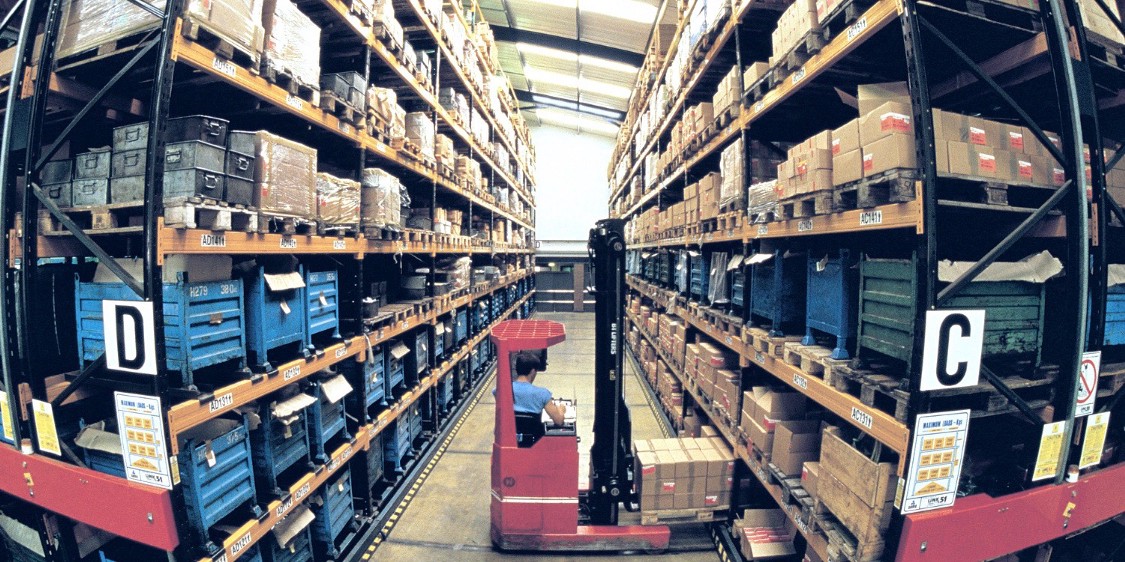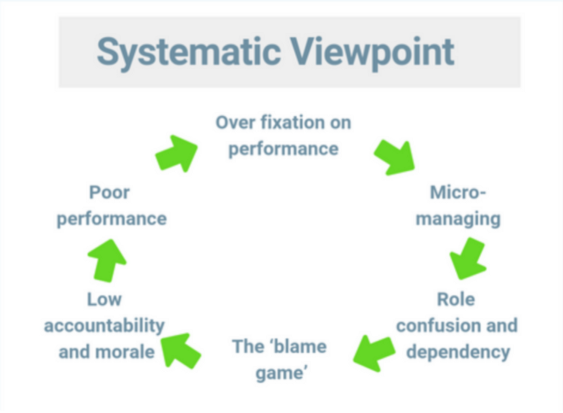Luc Briedé-Cooper
Client Stories: Why Work With a Small Company Like Jalapeño?
At Jalapeño, we don’t like to be trendy. That’s why this won’t be a top-10 list clickbait article. You are about to read a series of real accounts of anonymized clients showing the advantages and disadvantages of working with a small company, like Jalapeño.

The Manager
Sometimes it takes courage to open up to a stranger for help — sometimes it takes desperation.
A mid-level manager at a global clothing brand based in Vancouver reached out to one of Jalapeño’s consultants. Sitting across from the consultant, nervously gripping her coffee cup, she explained her situation. She was recently put in charge of a special project with a specially assembled team on a tight deadline. Since taking on the project, her team has underperformed. On top of this, she had recently missed a big career development opportunity.
Attempting to fix the team’s productivity issue, she added several consultants from one of the Big Five consulting firms to certain key roles. To her dismay, it only got worse and used up a chunk of her valuable budget.
The manager explained that she had an upcoming meeting with her senior manager to discuss the performance of her team. Her tone of voice alone made it clear she feared for her employment and was uncertain about how to handle the meeting.
Stop for a second and consider how you might prepare for such a meeting. Would you list all your successes and times of exceptionally hard work? Would you prepare statistics on your performance? Would you try and anticipate criticism and write down counter-arguments? Jalapeño didn’t provide the answers to these questions but provided the right questions.
While we usually support whole teams using our survey software paired with our consulting team, she, first, needed coaching to survive the meeting. The consultant assured her that we can help. While Jalapeño’s consultant anticipated future potential opportunities with this manager, for now, it required adapting our normal services to accommodate her. By virtue of being a small company, there was no need for extended contract negotiations, chains of approvals or bureaucratic processes. Jalapeño consultants started working with her the next day.
Jalapeño acted as a personal coach in the two weeks leading up to her important meeting. Tapping into Jalapeño’s value of transparency the consultants coached her on how to open up to her senior manager, how to admit her difficulties and lead honest dialogue. The senior manager appreciated the transparency and the fact that she was willing to reach out to Jalapeño. This honesty-based approach gave them the space to take a step back and examine everything that was going on and avoided an entrenched blame-game. Thankfully, the mid-manager didn’t lose her job. She got a second chance.
The speed and flexibility of the Jalapeño consultants were, in part, due to the size of Jalapeño’s team. As is common in small companies, the consultant she met with was also a lead project manager, given the authority to start projects. Not only could they approve the project, but they also had the knowledge of the services and procedures typically separated into different roles to see the future potential of the prospect in the first place.
By virtue of being a small company, there was no need for extended contract negotiations, chains of approvals or bureaucratic processes. Jalapeño consultants started working with her the next day.
The story isn’t over yet. After the meeting, moving forward, it was clear there was a broader problem within her team. The mid-manager knew something was off.
Instead of prescribing a cookie-cutter solution, Jalapeño provided a customized, more attentive approach, focusing on analyzing the problem deeply. Jalapeño’s robust survey platform and other activities are done to thoroughly define the problem. The end result was realizing their team structure and processes needed a significant overhaul.
Agile is a buzzword, sometimes.
Adopting Agile is a lot less easy than it is to say the words, “let’s become Agile”. It involves adopting the Agile philosophy which might not be in line with your company’s values especially if your company is risk-aversive or requires predictability and control. Many Jalapeño clients have needed value clarification since often their processes, structure and operations were misaligned with their values. Our survey found that the mid-managers team members wanted Agile and she claimed they were Agile but most of the work and the structure was non-Agile.
Although Jalapeño didn’t have an expert specifically trained in Agile like a large company might, their consultants had worked with Agile before and enthusiastically took the time, resources and training to become experts in Agile.
To accomplish their goal within their deadline, the client’s team needed to fully embrace Agile. They had no reason not to and were not on track to complete their project by the deadline.
The speed and flexibility of the Jalapeño consultants were, in part, due to the size of Jalapeño’s team.
So you must be wondering, how did it go? Did they complete the project on time? Unfortunately, now you’re up to date with our current client. We’ll have to see what happens! You may soon read about it in a case study. You can access our current case study at the bottom of this page.
In fact, one of the reasons a small company might have particularly strong intrinsic motivation to go above and beyond for their client is that the client could become a case study (or the subject of an article). The client could also provide testimonials and word-of-mouth to support the small firm in return. These factors show how small firms have more to gain and more to lose with their clients. After all, a client for a smaller firm is a higher percentage of their total business revenue, especially in B2B like Jalapeño.
The Warehouse
It’s an interesting thing when a tech company meets its users, face-to-face.
That’s exactly what happened when Jalapeño worked with the Vancouver warehouse division of an international company. Imagine the daily life of the warehouse team; 50 people in a massive room, squeezed between towering metal stacks under dry, artificial lighting. Standing there, you might feel claustrophobic yet hear your voice echo. Surrounding the workers were thousands of boxes of expensive, designer merchandise that they handled every day while being paid near minimum wage. Their engagement was low… but not because of what you’re probably thinking so far from this description.
We had conducted the survey already and surprisingly the results were positive. The workers were optimistic about things that didn’t match what the managers wanted support with nor did the results reflect observations made by Jalapeño consultants that had visited the warehouse previously. Perhaps it was a lack of trust in Jalapeño and the survey. Perhaps we had been introduced to the team in a way that made them feel we were working hand-in-glove with HR instead of as a 3rd party that could vouch on their behalf. The exaggeratedly positive survey results suggested there was a sense of fear of being honest about the way things actually were. This is not uncommon.
An important part of Jalapeño’s approach to employee engagement is thorough information gathering along different dimensions. Our platform survey provides robust quantitative insight, aggregated on the team level. As part of the process, Jalapeño will then organize a Jam Session; small group discussions to get feedback from the employees. The Jam Session insights complement the survey results and allow Jalapeño consultants to dig deeper into what’s really going on. For the warehouse, everyone would be split into two groups, mixing different roles and seniorities to get diverse perspectives.
On the day of the Jam Session, three Jalapeño team members made their way over to the warehouse. They consisted of two consultants, one of them the project lead, and myself. I knew the project lead well since, despite having a more senior role, they interviewed and on-boarded me into the company. Jalapeño’s own consultants work internally on our different HR processes, since, after all, we’re in the HR Tech space. I was newer to Jalapeño at the time and joined the trek to the warehouse to help with a presentation that’s part of the Jam Session.
As employees wandered into a room for the presentation they chatted and joked among each other. As the room filled, the warehouse managers joined and before we began, I noticed they had already gone quiet.
There were around 20 people including the warehouse managers who listened and watched us present. We explained the difference between linear and systematic thinking, emphasizing the role they all play in employee engagement and more. Despite the presentation going smooth, for some reason, the room’s atmosphere was uneasy and quieter than you would expect for that large a group. Afterwards, it was time for the small breakout groups.
But then we realized what was going on.
The tension during the presentation, the uneasy quietness, was actually between the managers and the non-managers. We realized, if we had managers mixed in with workers during the small group discussion, we wouldn’t get the on-the-ground perspective of the workers that we needed. The Jam Session was our chance to dig deeper and we couldn’t afford to miss the opportunity. What could we do? We couldn’t have one group of five managers and one group of 15 non-managers. We only had two consultants.
So you must be wondering, again, how did it go?
 Well, this client had particularly great success! It turns out that recent changes in the workplace led to uncertainty about new procedures. Due to that uncertainty, workers’ performance decreased, leading to an over fixation on the poor performance by managers which led to micromanaging. Micromanaging caused a dependency on managers for work to get done and confusion as to who is responsible for tasks and when mistakes occur. Workers reported a lot of unproductive blaming going on when accidents happened which decreased morale and worsened performance. As you can see, this is a negative self-reinforcing cycle. We made it our mission to interrupt this cycle. Accountability was the KPI identified by the Jalapeño team that needed bolstering and would alleviate the problem.
Well, this client had particularly great success! It turns out that recent changes in the workplace led to uncertainty about new procedures. Due to that uncertainty, workers’ performance decreased, leading to an over fixation on the poor performance by managers which led to micromanaging. Micromanaging caused a dependency on managers for work to get done and confusion as to who is responsible for tasks and when mistakes occur. Workers reported a lot of unproductive blaming going on when accidents happened which decreased morale and worsened performance. As you can see, this is a negative self-reinforcing cycle. We made it our mission to interrupt this cycle. Accountability was the KPI identified by the Jalapeño team that needed bolstering and would alleviate the problem.We’re happy to say that over the course of the quarter, Jalapeño reported a 30% increase in accountability, a virtual end of micromanaging and a significant reduction in the instances of the ‘blame game’! With those results, their journey with Jalapeño came to a close.
Luc Briedé-Cooper is responsible for Marketing and Business Development at Jalapeño Employee Engagement in Vancouver, BC, Canada. He has a BSc. in Physics from the University of British Columbia. Jalapeño is bringing their vision of a better workplace to life by developing a powerful survey platform paired with professional services to maximize employee engagement.